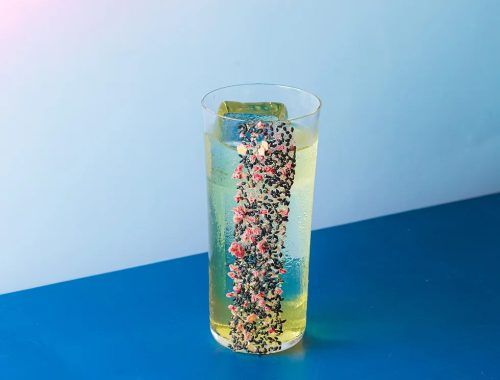Wines might be the poster child of healthy drinking, but malts aren’t too far behind. Here’s looking at a few perks of an on-the-rocks ritual for the benefits of drinking whiskyl.
The metaphoric pages of history have seen whisky take on many roles – from an antiseptic for battle wounds to the perfect ingredient to keep a cold at bay. In 1918 – as the Spanish flu raged through the United States – physicians and frontline workers would take swigs of malts to safeguard against infection. They’d also recommended small quantities to patients to ease their symptoms and stimulate the heart and respiratory system.
In 1920 – when the Prohibition made access to intoxicating beverages difficult – medical prescriptions were the only means to gain access to a bottle. Naturally, whiskies have come to be known for more than just their smoky, complex flavour. Several studies in the recent past have looked into Uisge Beath (Gaelic for ‘water of life’), noting exactly how the daily dram stacks up against the more nutritionally-sound habits. And although excessive drinking is sure to cause damage, careful moderation might just help you live longer. Here are a few health benefits of whisky.
6 health benefits that come with every sip of your favourite whisky
1. It’s diet-friendly with no fat, carbs, or sugar

Alcohol can quickly pack in the pounds – especially if you’re sipping liqueurs or craft beer. Whisky’s nutritional profile, however, places a glass under 200 calories (in fact, with most sitting at about 90 calories per peg), sans fat, carbs, and sugar. Naturally, having your daily dram with ice or a splash of water will aid weight maintenance or help you ace that diet to achieve fitness goals. Interestingly, sweet whiskies get their flavour from compounds in charred barrels, not sugar. So you can savour notes of fruit, caramel, chocolate, and vanilla, without raking up the calories.
2. It might help stave off cancer

The key to most cancer treatments and prevention techniques continues to feature antioxidants. These bust-free radical damages – caused by exposure to pollution, radiation, and industrial chemicals – can lead to the development of cancer. Several studies have found that malts contain antioxidants like ellagic acid, with moderate intake raising levels of the same. Enjoying a glass (or two) can – hence – help you live longer. That said, it’s worth noting that the same benefits can be obtained through a fruit bowl.
3. It might lower your risk of heart disease

Studies in the European Journal of Clinical Nutrition, Harvard University, and the European Heart Journal have found that moderate consumption of your favourite single-malt or bourbon could reduce the risk of heart disease. And this benefit might also be attributed to its high antioxidant levels. The research goes that the high levels of plant-based antioxidants (polyphenols) decrease the levels of “bad” LDL cholesterol in the body while increasing “good” HDL cholesterol levels. They also reduce triglycerides (fat) in the blood. Of all the options in the market, a bottle of single malt proved to possess the largest concentration of these said polyphenols – even in comparison to wine. The caveat? Moderation is key – drinking a few too many can be counterproductive.
4. It might protect against dementia

Around the world, about 55 million people have been diagnosed with dementia, as per research. This number is exponentially rising each year. And the solution might lie in your glass of Scotch. A study found that adults who consumed one-six portions a week (moderate intake) were half as likely to deal with dementia in their lives. This, when compared to non-drinkers and heavy drinkers, with the latter – in fact – potentially increasing the risk. Other studies found similar benefits to moderate drinking. That said, it’s worth noting that this is in reference to alcohol in general – not just whisky.
5. It might keep gout attacks at bay

Marked by sudden, excruciating bouts of pain, swelling, and redness – gout attacks occur in the joints, often the big toe. It can feel like your body has been set on fire and occurs due to a condition called hyperuricemia which is caused due to a buildup of uric acid in the body. Studies have found that moderate consumption of whisky can help reduce high levels of uric acid, in turn lowering the frequency and risk of gout attacks.
6. It’s gluten-free

This feature of whisky might not seem like a health benefit to the general population but can be quite significant for those with gluten intolerance or celiac disease. Whisky – which ranges from bourbon to Scotch – can be made with a variety of grains, including corn, rye, wheat, and barley. However, the process of making it involves fermentation and distillation – before it’s aged in wooden barrels. During this, the mash of grains is heated in a vapour before being condensed into a liquid – causing the alcohol to separate from the grain solids. Since gluten doesn’t evaporate, it’s left behind with the said solids. This gives ambers the Celiac Disease Foundation’s vote of confidence.
Now all that’s left to do, is to raise a glass to this golden spirit.

















